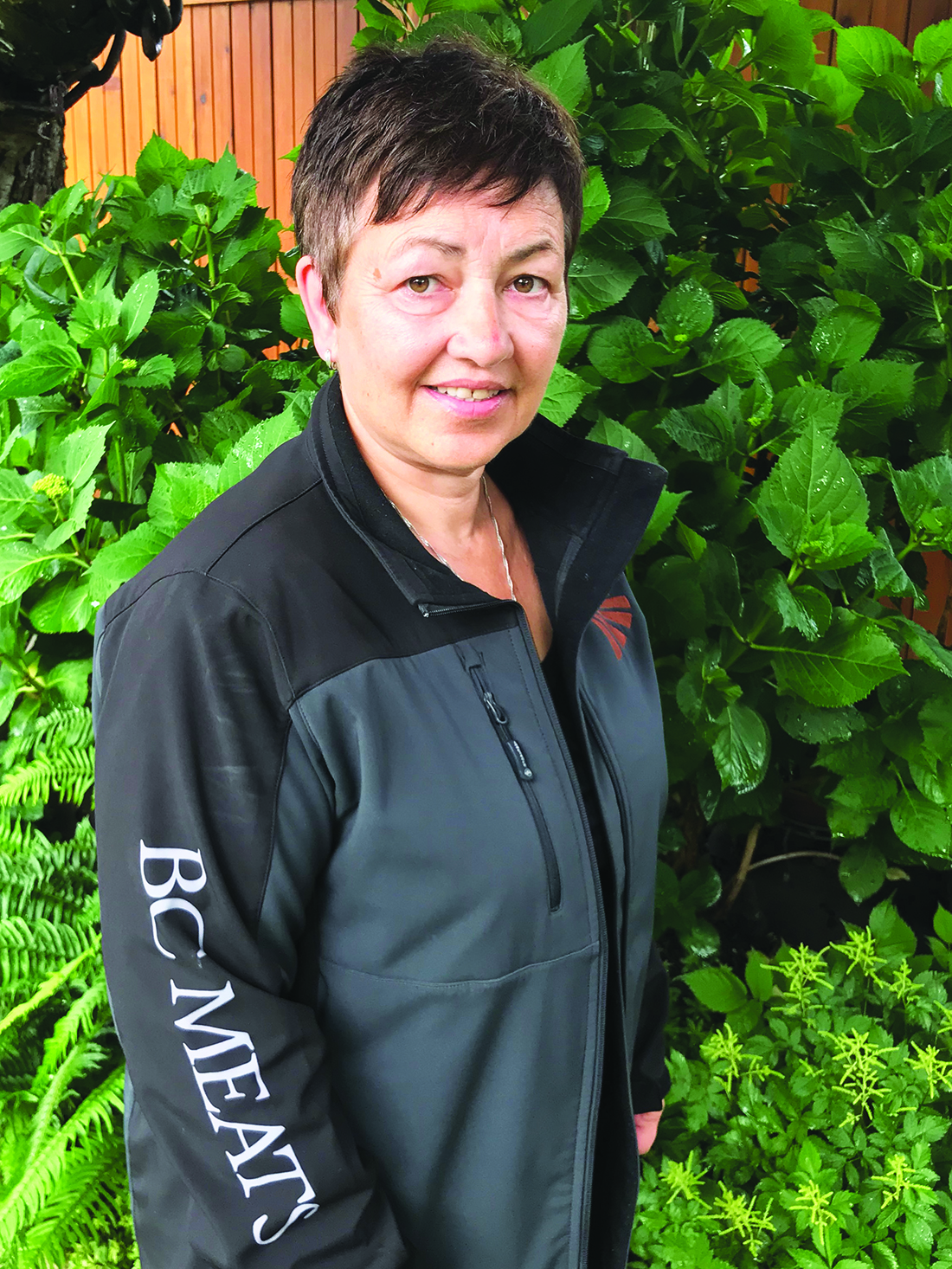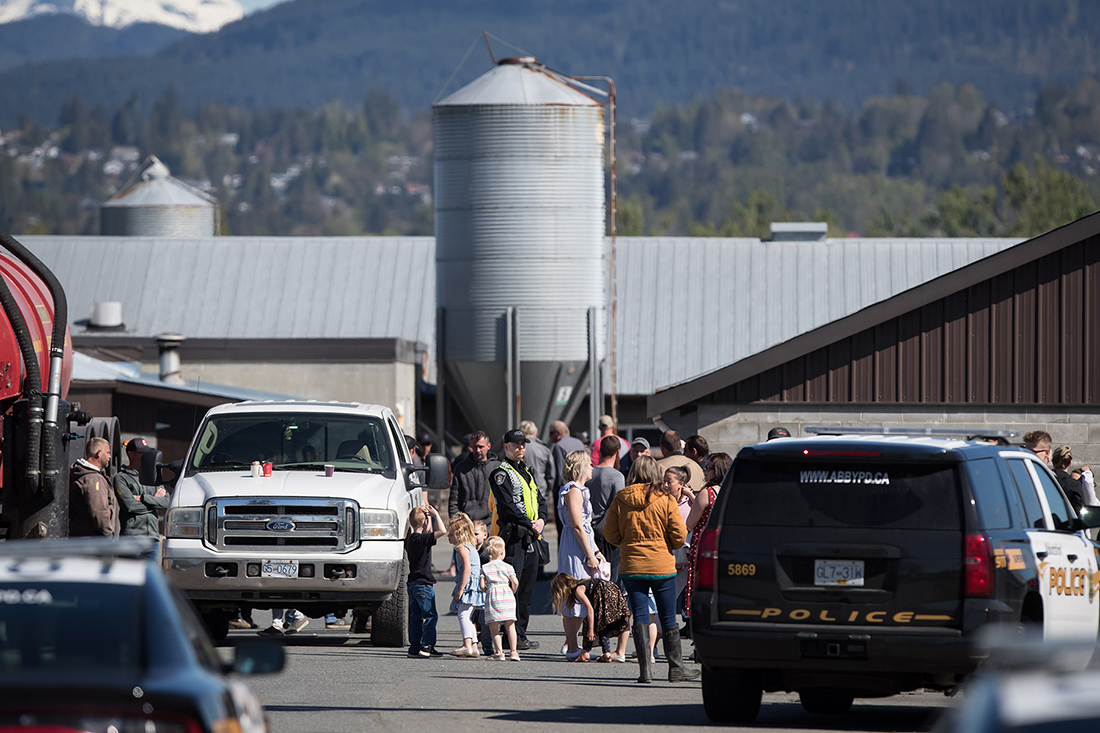CHILLIWACK – Bonnie Windsor is assistant plant manager at Johnston’s Packers Ltd., the largest provincially inspected slaughterhouse in BC. The business has been processing hogs in Chilliwack since 1937, making it one of the province’s oldest plants, too.
Windsor is bright, articulate, hardworking and has a raucous sense of humour. She could be working in any number of businesses, but she happens to work for a slaughterhouse. This put her on the front lines of an effort by animal rights activists to shut down a local hog farm – and the rest of the BC hog industry – at the end of April.
“I didn’t sign up for this,” Windsor told the BC Association of Abattoirs in Chase on April 27, five days after the PETA (People for the Ethical Treatment of Animals) released a video to CTV purporting to show pigs living in squalor at Excelsior Hog Farm in Abbotsford. “But I sure think I earned a black belt in PETA over the last four days. You learn quick.”
The video shocked Windsor and the rest of the staff at Johnston’s.
“We were as horrified as anyone else,” she says. “That is not what Johnston’s stands for, but we asked, ‘Is this real?’”
Conversations with the Binnendyk family, which runs the farm, confirmed that the video was taken at night and concentrated on the hospital pen, an area where sick or injured animals are taken for treatment. The family also believes some of the footage was shot elsewhere and edited into the video.
“We were named as the packer that the producer ships to, so I figured we might be next,” says Windsor says.
Cyberattack
The craziness began April 23, the morning after the CTV broadcast. Within a two-hour period, Windsor received more than 2,500 emails, many with the same subject line.
“I was trying to sift through and find any legitimate mail from customers,” says Windsor. “But I just couldn’t.”
Empyrion Technologies Inc., which provides IT services to Johnston’s, froze its account.
Then the activists found her cell number.
“I quickly learned not to answer it,” she deadpans. “I froze. I didn’t know what to do. … I’d already been awake all the first night.”
She spoke with the BC Pork Producers Association and poultry producers she knew who had been targeted by activists in the past. They all said the same thing: “Keep your head down, don’t respond, hide.”
Then she spoke to the Binnendyks, who changed her mind.
“You can’t imagine what those farmers went through,” says Windsor. “There were death threats to the family and people coming up and knocking on their door.”
But they told her the harassment wasn’t going to force them to take their farm sign down. She admired their attitude.
“[Ray Binnendyk] said, ‘We are a second-generation farm family. We are proud to feed the people of this province and we have nothing to hide,’” she recalls.
By the second day, she had found the courage to craft a response.
“I started to realize that we can’t fight with PETA but we can fight against them by making sure our customers [have] the right information,” she says.
Thursday, three days after the CTV broadcast, things got worse. Windsor received more than 10,000 emails that morning, crippling portions of Johnston’s computer system for several hours.
Empyrion helped get the system back in operation and Windsor started to respond to emails from upset customers.
“PETA was telling our story for us and we needed to start telling it ourselves,” she says. “It took me more than an hour to write my first letter. I composed what I thought would sound okay even if they put it on the news.”
The toll on the company has been significant. It has lost just one customer – a grocer who doesn’t believe Johnston’s has done anything wrong but wants to avoid the controversy – but the emotional toll has been huge.
Johnston’s can press charges for the cyberattack – a conviction carries a minimum fine of $100,000 – but it would cost it time and legal fees.
“I prefer to spend my time doing positive things,” says Windsor, who says she has already suffered enough.
“Three nights without sleep, it affects your health. All the hate messages. You start to question your ability to make decisions.”
Beef up security
The message she left with abattoir association members was a warning of the greater risks livestock producers and processors face, and the need to beef up security.
“I hope if I have convinced you of anything, I have convinced you to get security cameras for your plant,” she says. “And we all need emergency response plans. Perhaps we can draw up a master template together.”
She thinks media training would help, too.
“I’ve taken some but when they phone you up for a comment, you are pretty lost,” she says. “I had no idea what to say. … I think we can do a better job of telling our story. I’m certainly not going to keep my head down. I am going to make this industry stronger.”


